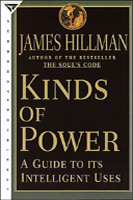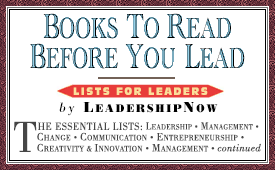
|
 |
Kinds of Power: A Guide to Its Intelligent Uses James Hillman 
Format: Paperback, 272pp. ISBN: 9780385489676 Publisher: Currency Pub. Date: January 1, 1997 Average Customer Review: For Bulk Orders Call: 626-441-2024 Description and Reviews From The Publisher: In the boldest expose on the nature of power since Machiavelli, celebrated Jungian therapist James Hillman shows how the artful leader uses each of two dozen kinds of power with finesse and subtlety. Power, we often forget, has many faces, many different expressions. "Empowerment," writes best-selling Jungian analyst James Hillman, "comes from understanding the widest spectrum of possibilities for embracing power." If food means only meat and potatoes, your body suffers from your ignorance. When your idea of food expands, so does your strength. So it is with power. "James Hillman," says Robert Bly, "is the most lively and original psychologist we have had in America since William James." In Kinds Of Power, Hillman addresses himself for the first time to a subject of great interest to business people. He gives much needed substance to the subject by showing us a broad experience of power, rooted in the body, the rnind, and the emotions, rather than the customary narrow interpretation that simply equates power with strength. Hillman's "anatomy" of power explores two dozen expressions of power every artful leader must understand and use, including: the language of power, control, influence, resistance, leadership, prestige, authority, exhibitionism, charisma, ambition, reputation, fearsomeness, tyranny, purism, subtle power, growth, and efficiency Reviews Power in business, politics and the world of work, to most people, implies competition, domination, control and reward. Rejecting this conventional notion of power as limited and stultifying, Jungian psychoanalyst and prolific author Hillman reconceptualizes power in terms of sustaining continuity, conserving, teaching, caring, bringing out the innate potential in each person or task. Growth, to corporations, means bottom-line results, bigger equals better. But to Hillman, growth is a process of shedding worn-out identities, cleaning up messes, pondering the implications of one's actions for the wider world and for future generations. The core of this highly reflective inquiry consists of short explorations?mythological, philosophical, etymological, psychological?of concepts like influence, tyranny, ambition, office and decision. Readers seeking immediate practical guidance will be disappointed; others may find in this humane essay more subtle and long-lasting keys to empowerment. —Publishers Weekly, Copyright 1995 Reed Business Information, Inc. Power has been credited with being an aphrodisiac and blamed for being a corrupting force. Psychoanalyst Hillman points out that there are many different kinds of power and that the execution of power has many styles and nuances. Hillman has written 20 books in the fields of Jungian psychology, depth psychology, and psychotherapy, but here he targets business and organizational leaders with his analysis of 20 different kinds of power, including tyranny, charisma, veto, and prestige, among others. He considers the nature of each and suggests when, how, and why to wield each in turn. In the past, power has been used to increase growth and efficiency, but now, so Hillman explains, it should be used to accomplish the goals of service and maintenance. In contrast to the often simplistic managerial-advice books that are currently popular, this one, at times, is difficult to read, for it is filled with theoretical observations, mythical allusions, and complex ideas; it is also always thoughtful and thought provoking. —Booklist, David Rouse
About the Author James Hillman is a psychologist, scholar, international lecturer, pioneer psychologist, and the author of more than twenty books, including The Soul's Code, Re-Visioning Psychology, Healing Fiction, The Dream and the Underworld, Inter Views, and Suicide and the Soul. A Jungian analyst and originator of post-Jungian "archetypal psychology," he has held teaching positions at Yale University, the University of Chicago, Syracuse University, the University of Chicago, and the University of Dallas, where he cofounded the Dallas Institute of Humanities and Culture. After thirty years of residence in Europe, he now lives in Connecticut. Find Items On Similar Subjects |
|

The Essential Lists BOOKS TO READ BEFORE YOU LEAD 
Grow Your Leadership Skills NEW AND UPCOMING LEADERSHIP BOOKS 
Classic Leadership Books BOOKS TO READ BEFORE YOU LEAD |
 |
| ||
 | © 2019 LeadershipNow™ All materials contained in https://www.LeadershipNow.com are protected by copyright and trademark laws and may not be used for any purpose whatsoever other than private, non-commercial viewing purposes. Derivative works and other unauthorized copying or use of stills, video footage, text or graphics is expressly prohibited. |
||